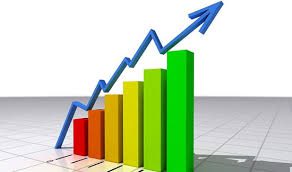Ethiopia has reported a 9.6 percent avarage economic growth over the past three years, the ruling party of the country has announced on Thursday.
In a communique it issued on Thursday, the Ethiopian Peoples’ Revolutionary Front (EPRDF) said the average GDP registered during the period was 9.6 percent, with 5.7 percent growth in agriculture, 19.1 in industry and 10.3 percent in the services.
The average GDPgrowth over the past three years has declined from 10.1 percent in the previous yeas to 9.6 percent over the past three years, it noted.
The Executive Committee has passed resolutions that will help boost the country’s economy, following extensive discussion about the economy of the country.
Instability and the low FDI flow into the country were blamed as major factors for cooling of the economy even though the growth was reportdly one of the highest in Africa.
It further noted that the effort to limit inflation into a single digit by creating stable macro-economy was not successful in the stated years. Consequently, inflation reached 13.1 percent at the end of the Ethiopian fiscal year which ended on July 8,2018.
In general, the loan-based financial development model the government has been pursuing and low capacity of the management of huge state-owned projects have pushed the economy into problem.
The committee recalled that short-term loans which resulted in significantly increasing foreign loan were suspended indefinitely.
The committee hoped that the bilateral and multilateral relations which the government has been building in the past one year helped the nation to improve the influence and acceptance at the global level which it said will contribute to address economic challenges into explore opportunies.
The ruling EPRDF indicated that enhanced engagement of the Ethiopian Diaspora and participation of the public in political and developmental spheres has also created opportunity in re-invigorating the economy.
The government has imposed limits on loan to meet budget deficit not to exceed 3 percent of the economy and ensure macroeconomic stability by restricting government spending and boosting tax income.
MG/abj/APA


